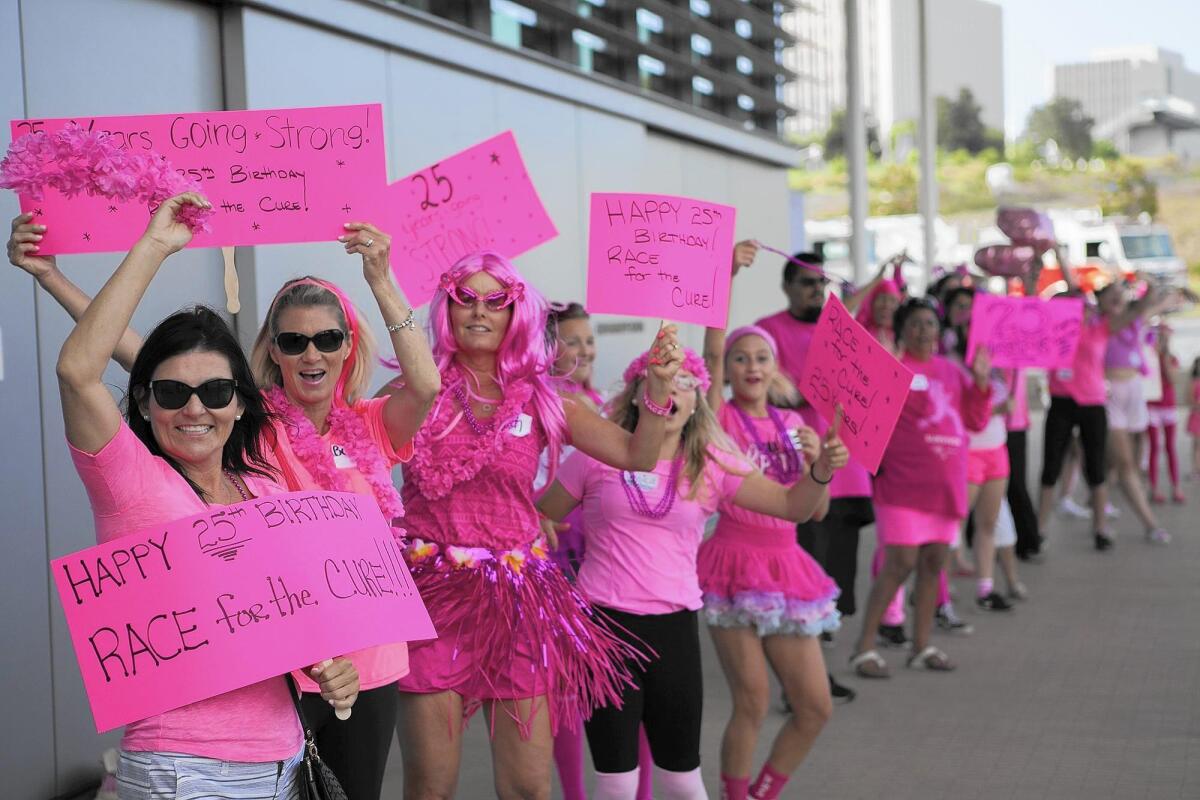Commentary: Neglected breast cancer is an all too common occurrence

As breast cancer specialists, one of the most distressing aspects of our jobs is seeing new patients who have ignored their symptoms for weeks, months — or even years. Some are young women (mothers, sisters, daughters, granddaughters) who found a lump but kept putting off their mammograms or delayed a consult with their physician; other women simply hope the changes in their breasts will disappear without treatment or surgery.
Neglected breast cancer is an all too common clinical occurrence in underserved communities, whether that’s in Third World nations or in areas of the United States where women have limited access to screenings, treatment and education. However, we see patients in Orange County who know all about breast cancer and its symptoms and have access to medical experts. But their fear of breast cancer caused them to avoid seeking care in a timely manner.
We know how scary this can be. But it’s important to note that finding breast cancer early is one of the most important factors in successful treatment of this disease and gives us more treatment options for a cure. In fact, the five-year survival rate for localized breast cancer (cancer that has not spread to lymph nodes or other organs) is 99 percent. Early detection and treatment is key.
Neglected breast cancer is not a new phenomenon. A 2015 survey found that nearly one in five women who discovered a suspicious sign, such as a lump in their breast, did not contact their doctor for at least a month. One in 20 women waited six months or longer to get checked by a medical expert. Another study found that one out of three women experiencing symptoms with their breasts waited more than three months before seeking medical help. We must change this.
Early detection is a gamechanger. It’s worth noting that according to the National Cancer Institute, Orange County has a higher rate of women with breast cancer than both the state and national averages.
For many patients, breast cancer is detected without the appearance of symptoms, therefore regular screening mammography (appropriate to your age and risk level of breast cancer) is important and effective in detecting the disease early.
Self-breast awareness and clinical breast exams by a healthcare professional are also critical for early breast cancer detection and treatment.
Breast cancer is the most common cancer diagnosis for American women, other than skin cancer. A woman’s risk of breast cancer nearly doubles if her mother, sister or daughter has been diagnosed with breast cancer. But family history alone is not determinative: Fewer than 15 percent of women who get breast cancer have a family member with the disease, which makes self-exams and regular checkups even more essential.
October is Breast Cancer Awareness Month. The time is now for women to talk to their doctors about breast cancer, know their risk factors, understand screening recommendations and be proactive in early detection of breast cancer.
If there’s one message we want to convey it’s this: If you notice changes in your breasts, schedule an appointment with your physician.
The most common physical change you may notice is a breast lump, but see your doctor if you have non-cyclic (not associated with menses) breast pain, persistent swelling, redness of the skin, nipple discharge, breast skin or nipple rash, swelling of your underarm lymph nodes or changes in your nipples. Ask your doctor if you’re due for a screening and talk to him or her about healthy habits you can explore — like controlling your weight, avoiding smoking and being physically active. Your doctor can also help you better understand your personal overall risk.
Facing an uncertain diagnosis is scary, but experts who truly understand your needs and fears and will be by your side are here in Orange County. Don’t put your health on hold.
Hang T. Dang, D.O., a fellowship-trained breast surgical oncologist, and Wade Smith, M.D., a board-certified medical oncologist specializing in breast cancer, practice together at City of Hope Newport Beach.
All the latest on Orange County from Orange County.
Get our free TimesOC newsletter.
You may occasionally receive promotional content from the Daily Pilot.



